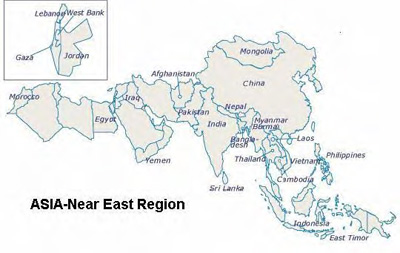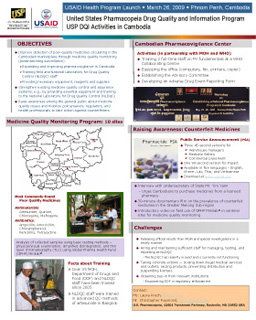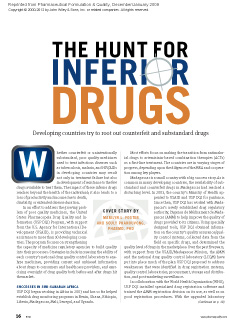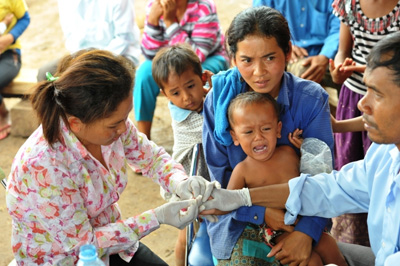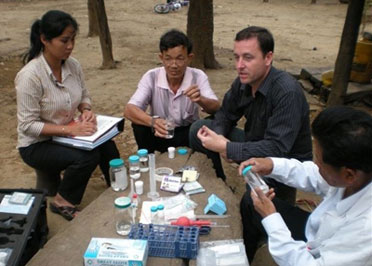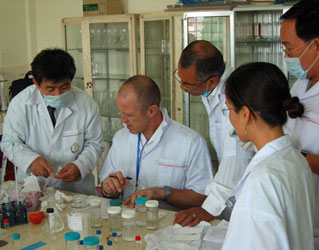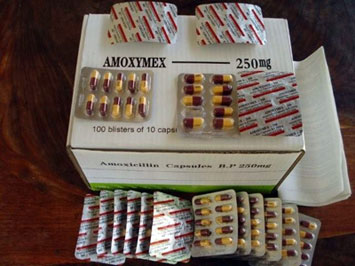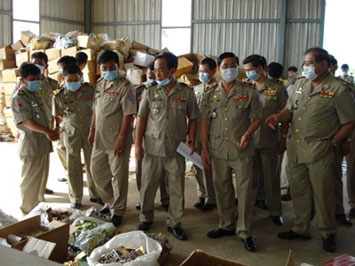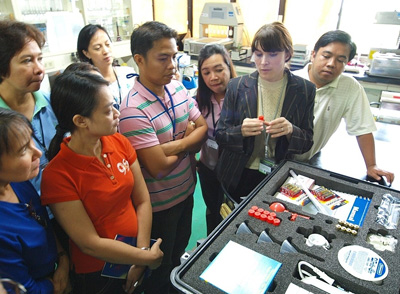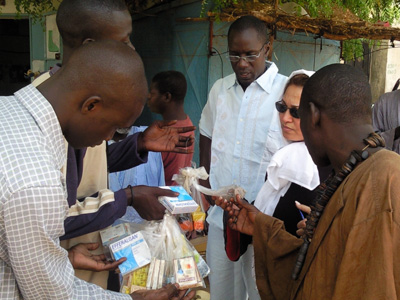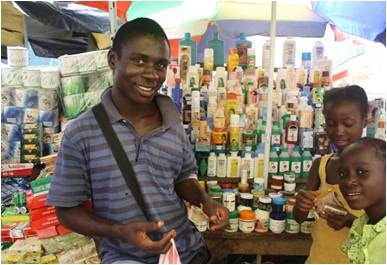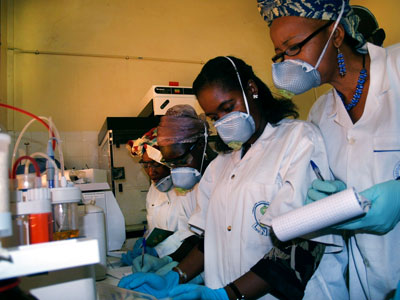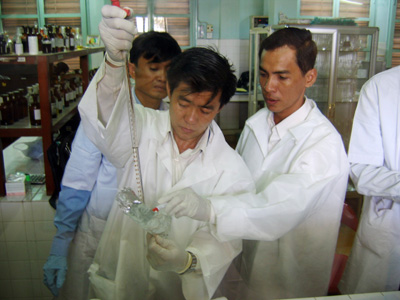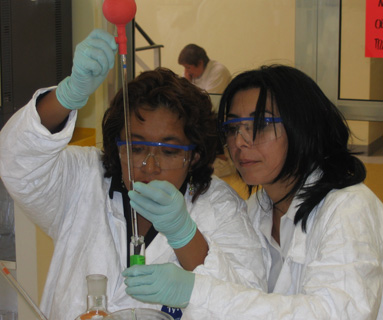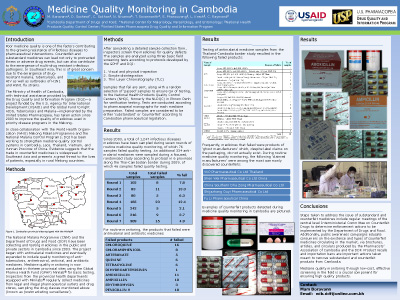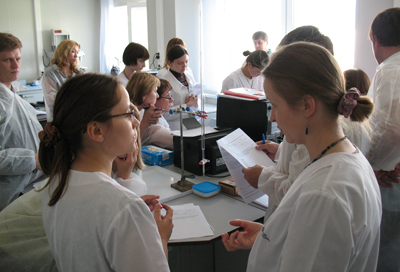2000-2010
Drug Quality and Information (DQI) and Promoting the Quality of Medicines (PQM)
In 2000, USP-USAID collaborative efforts evolved into DQI, a program focused on improving the quality of medicines and their appropriate use in resource-limited countries. It concentrated on malaria, HIV/AIDS, and tuberculosis in Latin America, Africa, and Asia, working with national governments and other global agencies to combat counterfeit medicines. The first Official Medicines Control Laboratory (OMCL) Network—the External Quality Control Programs (EQCP) network—was created in 2001 through the collaboration of USP, the Pan American Health Organization (PAHO), and OMCLs from Latin America and Caribbean countries. In 2009, USP was awarded a five-year $35 million USAID grant to support a new expanded program, which transitioned DQI efforts and resources into the new PQM program. PQM's focus is to strengthen medicines quality assurance systems, combat substandard and counterfeit medicines, and support global efforts in improving public health. PQM supports the prevention of supply of substandard and counterfeit medicines by developing monographs, providing collaborative testing, and offering technical assistance in the form of reference standards, documentary standards, and training. It has helped communities in more than 35 countries in Africa, Asia, Eastern Europe, and Latin America.
